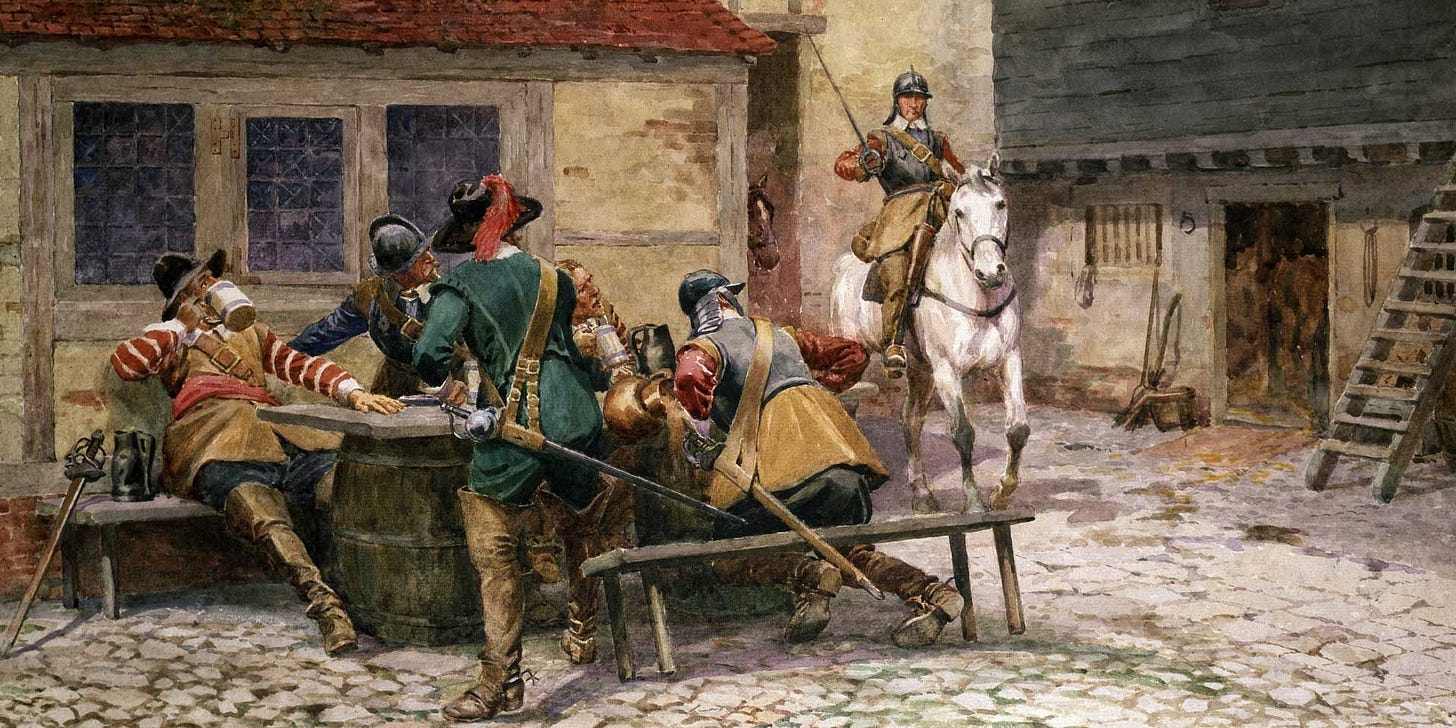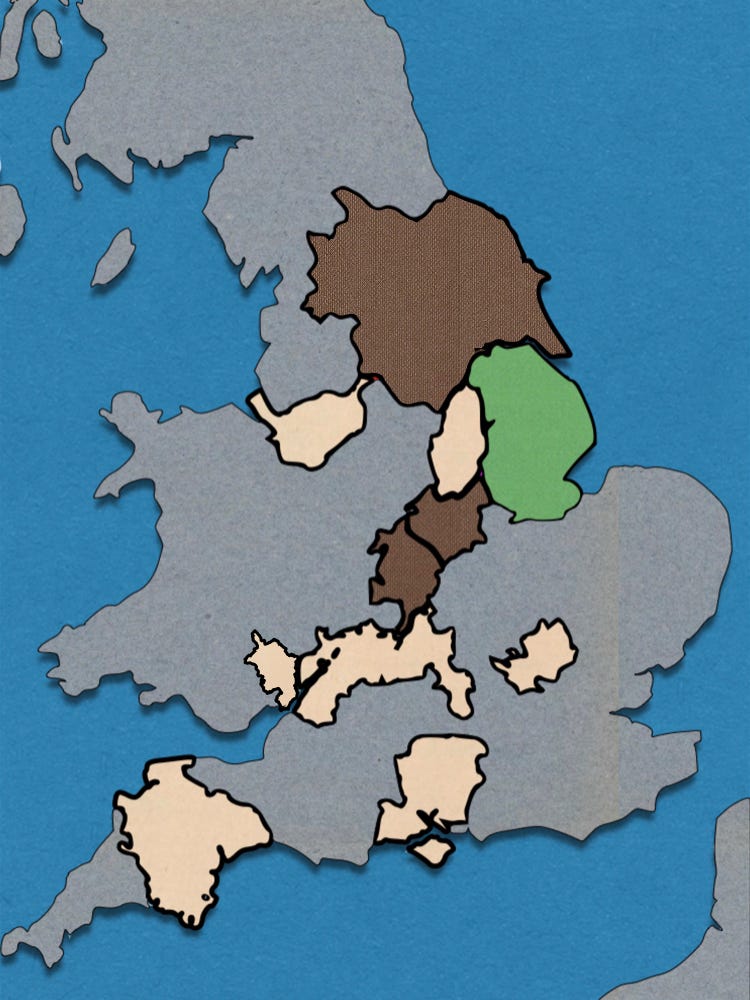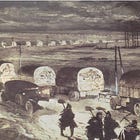Writing in the Journal of the Society for Army Historical Research, Peter Leadbetter tells a tale of the way people who fought in the English Civil War said the word lieutenant.1 Thanks to the many creative spellings of the word that he found in baptismal, marriage, and burial records, Mr. Leadbetter surmised that, while some English people of the middle years of the seventeenth century ended the first syllable of lieutenant with an “f”, others preferred a closer approximation of the French pronunciation. That is to say, some English people of the pike-and-shot persuasion rendered the title of a captain’s deputy à l’américaine.
In making his survey, Mr. Leadbetter noticed an interesting pattern. In one county, that of Lincolnshire, all four of the records he found suggested that the people involved refrained from inserting an “f” between lieu and tenant. (On the map, Lincolnshire is, mirabile dictu, depicted in a color close to Lincoln green.)
In eight counties (one of which was the Welsh county of Monmouthshire), all phonetic spellings of lieutenant encountered by Mr. Leadbetter included the telltale consonant. (These are colored khaki on the map.) In three counties, however, he discovered instances of both pronunciations.2 (These are shown in brown.)
Inspired by the work of Mr. Leadbetter, I decided to look for cases in which people on the west side of the Pond spelled lieutenant with an “f.” In particular, I used the (truly marvelous) search engine on the website of the Hathi Trust to look for appearances of leftenant in older books and articles.
Of the instances turned up in this search, the oldest appeared in the records of the town of Boxwood, Massachusetts, for 1691. (These records, which deal with mundane matters of municipal administration, bear witness to the custom of the use of military ranks, presumably the result of service in the local militia, in civilian life.3 Thus, the town employed “Sargent Chadduck” and “Corperal Kimbal” as surveyors and called “Leftenant Parley” to jury duty.)4
In American historical novels of the nineteenth century, backwoodsman and other rustics frequently address officers, whether naval or military, British or American, as “Leftenant.” Whether that trope reflected reality, however, is hard to say. (Sometimes, I regret to report, the authors of historical fiction just make things up.)
In one book, which librarians catalogue as a true-to-life travelogue, a citizen of the short-lived Confederate States of America addresses an officer of US Volunteers as “Leftenant.” The style in which this work is written, however, suggests that it may well have been a work of fiction.5
If you are interested in the English Civil War (or, as the cool kids now call it, the War of the Three Kingdoms), you will enjoy the (delightfully long) series of episodes that the History of England podcast is devoting to that event. (As of Labor Day, 2023, Charles I retains the use of his noggin and “Crommers is just a bloke.” Something tells me, however, that things are about to get interesting.)
Peter Leadbetter “The Pronunciation of Lieutenant in the Mid-Seventeenth Century” Journal of the Society for Army Historical Research (Winter 2021) pages 434-346
For the purposes of his study, Mr. Leadbetter treated Yorkshire as a single unit.
I wonder if this custom was an artifact of King Philip’s War, which had ended in 1678, well within living memory of 1691.
Sidney Perley (editor) Boxford Town Records: 1685-1706 (Boxford: Essex Institute, 1900), page 50









To get over the pronunciation issue, just call them Placeholder.
Canadian army lieutenants are "leftenants" aloud, but thanks to the overwhelming cultural presence of US TV shows and movies, most Canadians will default to the American usage.